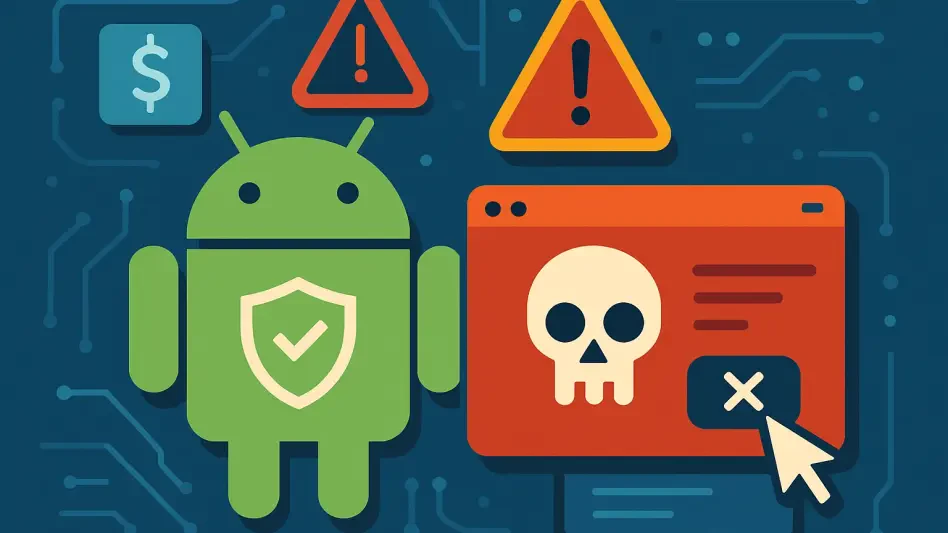Microsoft has sounded the alarm on a new breed of remote access trojan (RAT) dubbed StilachiRAT, which poses a grave threat to cryptocurrency wallet extensions on Google Chrome. Discovered by Microsoft’s Incident Response Team, this malware showcases advanced mechanisms for dodging detection and can siphon off critical user information. The alert highlights the sophisticated methods employed by StilachiRAT to extract sensitive data, including information stored in digital wallets and copied to the clipboard, making devices with cryptocurrency wallet extensions extremely vulnerable.
Discovery and Initial Findings
In November last year, Microsoft’s Incident Response Team identified StilachiRAT following a thorough investigation into unusual activities targeting Chrome users. The malware has been meticulously crafted to target cryptocurrency wallets on the Chrome browser, zeroing in on users’ digital assets stored in browser extensions. Microsoft’s experts have published their findings to help the public shield themselves from this treacherous RAT, aiming to reduce the number of potential victims.
Drawing attention to StilachiRAT’s design, Microsoft revealed that it uses intricate evasion techniques to bypass detection systems. The trojan has the ability to scrutinize Chrome’s local state file to extract valuable credentials like passwords and cryptocurrency keys. Additionally, it keeps tabs on clipboard activities, potentially capturing sensitive data that users copy and paste, thus turning devices with crypto wallet extensions into prime targets. These findings underscore the importance of robust security measures for users dealing with cryptocurrency on Chrome.
Technical Capabilities and Targeted Wallets
StilachiRAT intensively scans the infected systems to identify the presence of popular crypto wallet extensions, aiming to siphon off data related to these digital assets efficiently. Among the targeted wallets are well-known names like MetaMask, OKX wallet, Coinbase wallet, and Trust wallet. Once identified, the trojan deploys its payload to extract user data, including cryptocurrency wallet credentials and any sensitive information stored within these extensions.
A pivotal aspect of StilachiRAT’s function is the use of its WWStartupCtrl64.dll module, integral to the trojan’s info-stealing prowess. This module enhances the trojan’s ability to capture comprehensive system details, including OS specifics, BIOS serial numbers, active Remote Desktop Protocol sessions, camera presence, and running GUI applications. By leveraging these capabilities, StilachiRAT can efficiently extract and transmit detailed information from infected systems, further endangering user privacy and security.
Evasion Techniques and Anti-Forensics Measures
StilachiRAT isn’t just adept at stealing data; it excels at evading detection and thwarting forensic investigations. One key evasion technique includes clearing event logs, helping it stay under the radar post-infection. Additionally, the trojan conducts checks to determine if it is operating within a sandbox environment, a method often used by cybersecurity professionals to analyze malware behavior. By identifying and circumventing sandbox environments, StilachiRAT can effectively avoid analysis and detection attempts.
The malware employs bi-directional communication channels with its command and control (C2) server, enabling versatile espionage and system manipulation tasks. Equipped with ten distinct commands, StilachiRAT can interfere with system operations and exfiltrate data at the behest of its operators, underscoring its utility for malicious purposes. These features grant the malware significant versatility in executing various tasks, from data theft to system disruption, offering a robust toolkit for cybercriminals.
Unidentified Actors and Mitigation Strategies
As of the alert’s publication, Microsoft has not identified the perpetrators behind StilachiRAT, leaving their origins and intentions shrouded in mystery. The tech giant’s announcement aims to heighten public awareness of the trojan’s presence and sophisticated capabilities, thereby reducing potential victims. Microsoft emphasizes that the trojan has yet to achieve widespread distribution, offering a measure of relief. However, the potential for broader dissemination mandates vigilance and proactive security measures.
Despite this narrow distribution, the company advises users to adopt stringent cybersecurity practices to safeguard against StilachiRAT and similar threats. Microsoft suggests deploying robust antivirus programs, cloud-based anti-phishing, and anti-malware tools, and maintaining cautiousness regarding initial attack vectors. By adhering to these measures, users can enhance their defenses against potential threats, ensuring their devices and digital assets remain protected.
Industry Insights on Crypto Malware
The emergence of StilachiRAT reflects a broader trend of rising illicit activities in the crypto space, indicating a need for heightened vigilance among users and institutions. Data and blockchain security firm CertiK reported staggering losses from crypto-related scams and hacks, surpassing $1.53 billion in February alone. Chainalysis, a blockchain analytics firm, corroborates these findings, warning of increasing on-chain illicit activities as cryptocurrencies gain mainstream traction. This trend underscores the growing professionalization and sophistication among malicious actors targeting the crypto domain.
Chainalysis noted that illicit addresses accrued nearly $40.9 billion from crypto-related crimes, marking approximately 0.14% of the total on-chain transaction volume. As these actors refine their techniques with large-scale on-chain services designed for laundering funds, an increase in criminal activity could ensue in the coming years. This scenario highlights the urgent need for vigilant protective measures in the crypto domain, ensuring users remain aware of evolving threats and proactive in their security practices.
Conclusion
Microsoft has issued a warning about a new and highly dangerous remote access trojan (RAT) named StilachiRAT, which poses a significant threat to cryptocurrency wallet extensions on Google Chrome. This cybersecurity threat was identified by Microsoft’s Incident Response Team. StilachiRAT exhibits advanced techniques to avoid detection, allowing it to steal crucial user information seamlessly. Microsoft’s alert underscores the sophisticated strategies employed by this malware to extract sensitive data, targeting information stored in digital wallets and data copied to the clipboard. As a result, any device with cryptocurrency wallet extensions becomes extremely susceptible to an attack. This new strain of malware represents a significant risk, especially to those who engage in cryptocurrency transactions or store digital assets. The techniques used by StilachiRAT to evade security measures and access personal information illustrate the ongoing evolution of cyber threats, highlighting the need for heightened digital security awareness and stringent protective measures.







